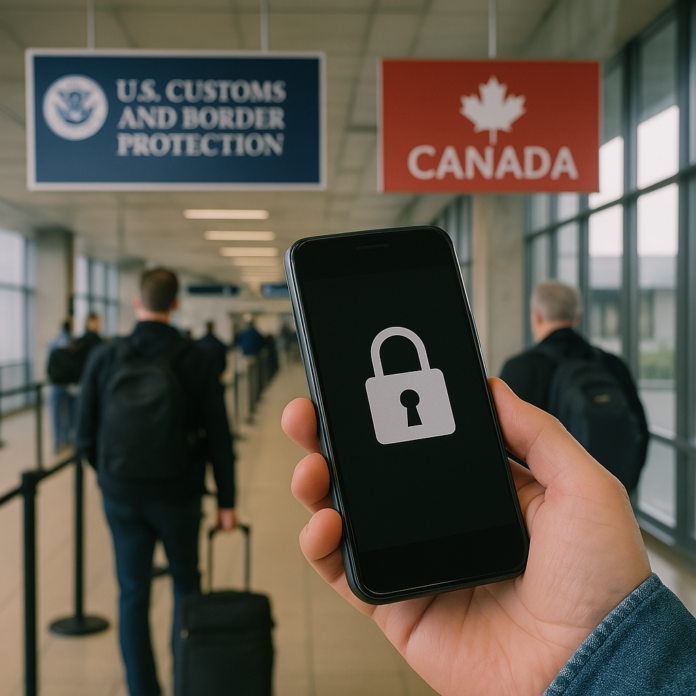Recent reports indicate that the Trump administration has intensified inspections of travellers’ electronic devices, leading to detentions and deportations of both U.S. residents and tourists under its stringent immigration policies. Although such electronic searches constitute a small fraction of border interactions, it’s prudent for travellers to take steps to safeguard their personal data.
Border Searches Do Not Require A Warrant:
U.S. Customs and Border Protection (CBP) possesses the authority to search electronic devices without warrants at borders and international airports. While U.S. citizens cannot be denied entry for refusing a device search, foreign visitors might face denial of entry, and lawful permanent residents could encounter complications regarding their residency status.
Recommendations for Protecting Your Data While Traveling:
- Limit Sensitive Information: Before traveling, consider removing sensitive data such as licenses, credit card details, or personal photographs from your devices. Randy Rose, Vice President of Security Operations and Intelligence at the Center for Internet Security, advises: “Just assume that phone is not going to be yours at some point during your trip.”
- Avoid Unsecured Networks: Steer clear of open Wi-Fi networks, which may be unsecured and susceptible to data interception.
- Use Secure Charging Methods: Opt for power adapters instead of plugging devices directly into USB ports to mitigate risks associated with data theft via compromised charging stations.
- Utilize Virtual Private Networks (VPNs): Employing a VPN can encrypt your data and mask your location, enhancing online privacy. Rose emphasizes: “The internet was not built with security in mind… It was built for open communication, and over time we’ve tacked security on.”
- A “Burner” Phone: For those unwilling or unable to remove data from their device, consider a temporary or “burner” phone for use in the U.S. Since these temporary devices are rather rudimentary, frequently travellers might consider having a second phone purely for travel.
Additional Legal Considerations:
If you are stopped by law enforcement, they can compel individuals to unlock their devices using biometric methods such as facial recognition or fingerprints. They cannot require you to disclose numeric passcodes, as this is protected under the Fifth Amendment against self-incrimination.
How likely are you to have a problem?
In the fiscal year 2024, border services conducted 47,047 searches of electronic devices, affecting fewer than 0.01% of arriving passengers. Of these searches, approximately 10,500 involved U.S. citizens, while 36,500 pertained to non-U.S. citizens.
There have been at least one highly publicized stories of Canadians who have been stopped and interrogated and asked questions regarding whether they favoured the U.S. or Canada. In another case a Canadian was detained for two weeks due to problems with her visa. So while statistically you may not have issues, if the situation worsens with the United States, you may want to be prepared.
Even if this doesn’t concern you, it is still a good idea to proactively manage the data on your electronic devices and understand your rights so you can enhance your personal security and privacy while traveling.


